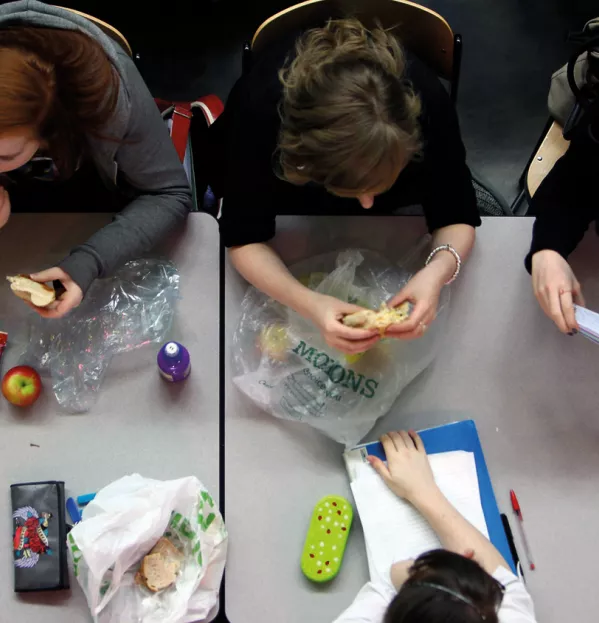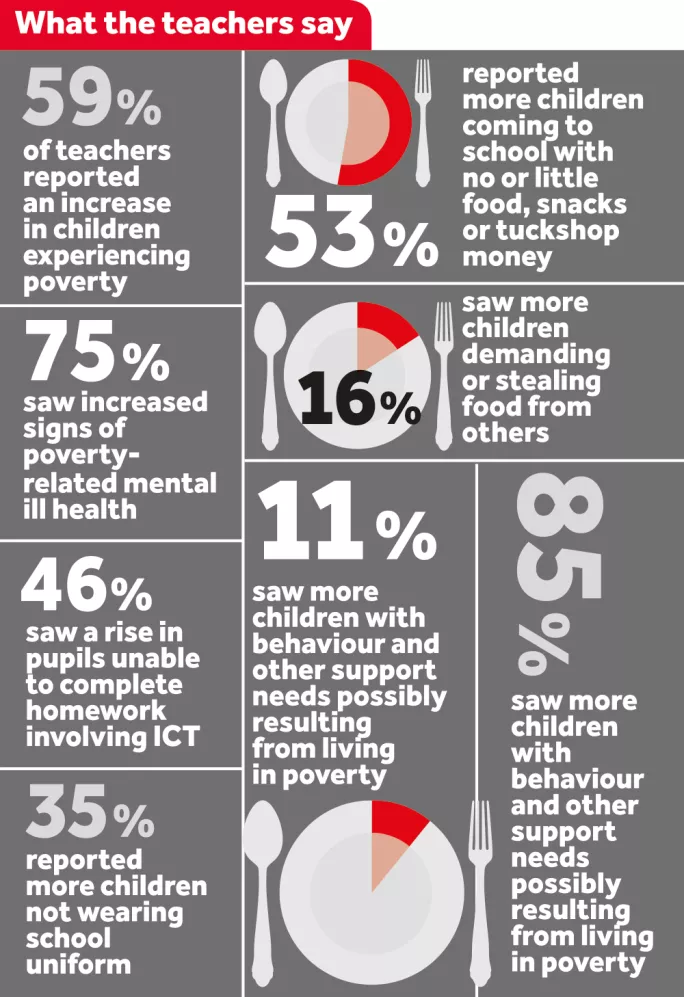‘Poverty is tightening its grip on Scottish children’

Growing numbers of children are coming to school hungry and suffering from poverty-related physical and mental health problems that make it harder to learn, according to alarming new research from Scotland’s biggest teaching union.
The findings, seen by Tes Scotland, also suggest that pupils from poor families can struggle with ICT-based homework, fundraising events and trips - and may even skip school to avoid the shame they feel.
The EIS teaching union’s Face Up to Child Poverty report for 2016-17, which is formally launched today, is based on a survey of members in which two-thirds of respondents reported seeing an increase in pupils experiencing poverty.
This is consistent with the Scottish government’s recent annual report on its Child Poverty Strategy, which showed rising numbers of children living in deprivation.
Three-quarters of the teachers surveyed saw increasing signs of poverty-related mental ill health, as well as head lice and skin conditions; they remarked on the amount of pupils arriving at school dirty or who had poor teeth or ill-fitting shoes.
More than half - double the proportion in the previous survey, in 2015 - said that they or colleagues were actively trying to help children at their school living in poverty, for example by buying them socks or underwear, or inventing “competitions” so that pupils could “win” free places on school trips.
Respondents also suggested that poverty was having a damaging impact on the education of the children they taught. For example, the survey revealed concerns about pupils whose health was affected by poor nutrition and who lived in cold, damp conditions, and who confided in teachers that they liked school simply because it was warm.
Education ‘blighted’
EIS assistant secretary Andrea Bradley said the findings confirmed that “the grip of poverty continues to tighten on alarmingly high numbers of Scotland’s children” and that it “blights day-to-day educational experiences” of more than a quarter of those of school age - around 260,000 in total.
Sometimes the pressures faced by families were obvious - one school said the number of children at its breakfast club had risen from five to 100. Other schools were seeing more subtle signs, such as pupils failing to turn up on fundraising or fancy-dress days as they could not afford costumes or donations as low as £1.
Away from school, teachers reported families facing eviction and living in hotels, parents who had lost jobs due to the oil industry downturn and children staying off school to look after younger siblings.

Ms Bradley called for an end to “inhumane” benefits sanctions and “poverty wages”, adding that an adequate income for all parents “is the key to enabling better educational outcomes for all children”. She welcomed recent extra funding for schools but said it was “against a backdrop of successive years of underfunding of comprehensive education”.
Plans to transform school governance, “while perhaps having the potential to fill current gaps in the pedagogical support…available to schools”, did not answer “many bigger questions” about how to close the poverty-related attainment gap, Ms Bradley added.
The EIS survey had responses from around 300 members across 31 local authorities.
Poverty expert Professor John H McKendrick, of Glasgow Caledonian University, said the findings demonstrated “how everyday life has become tougher in recent years for many of the most vulnerable families in Scotland” and agreed that “the difficulties in making ends meet are impacting adversely on school life”. He praised the government for “taking steps to eradicate child poverty and encouraging us to narrow the attainment gap”, but stressed this wouldn’t happen “without more action beyond the school gates to tackle family hardships”.
A Scottish government spokeswoman blamed rising poverty on UK government austerity policies, and said this was being mitigated through measures such as the £750 million pot to tackle the attainment gap.
She added: “What’s more, the Child Poverty Bill will see Scotland become the only part of the UK to propose statutory targets in a bid to reduce the number of children experiencing the damaging effects of poverty by 2030.”
You need a Tes subscription to read this article
Subscribe now to read this article and get other subscriber-only content:
- Unlimited access to all Tes magazine content
- Exclusive subscriber-only stories
- Award-winning email newsletters
Already a subscriber? Log in
You need a subscription to read this article
Subscribe now to read this article and get other subscriber-only content, including:
- Unlimited access to all Tes magazine content
- Exclusive subscriber-only stories
- Award-winning email newsletters